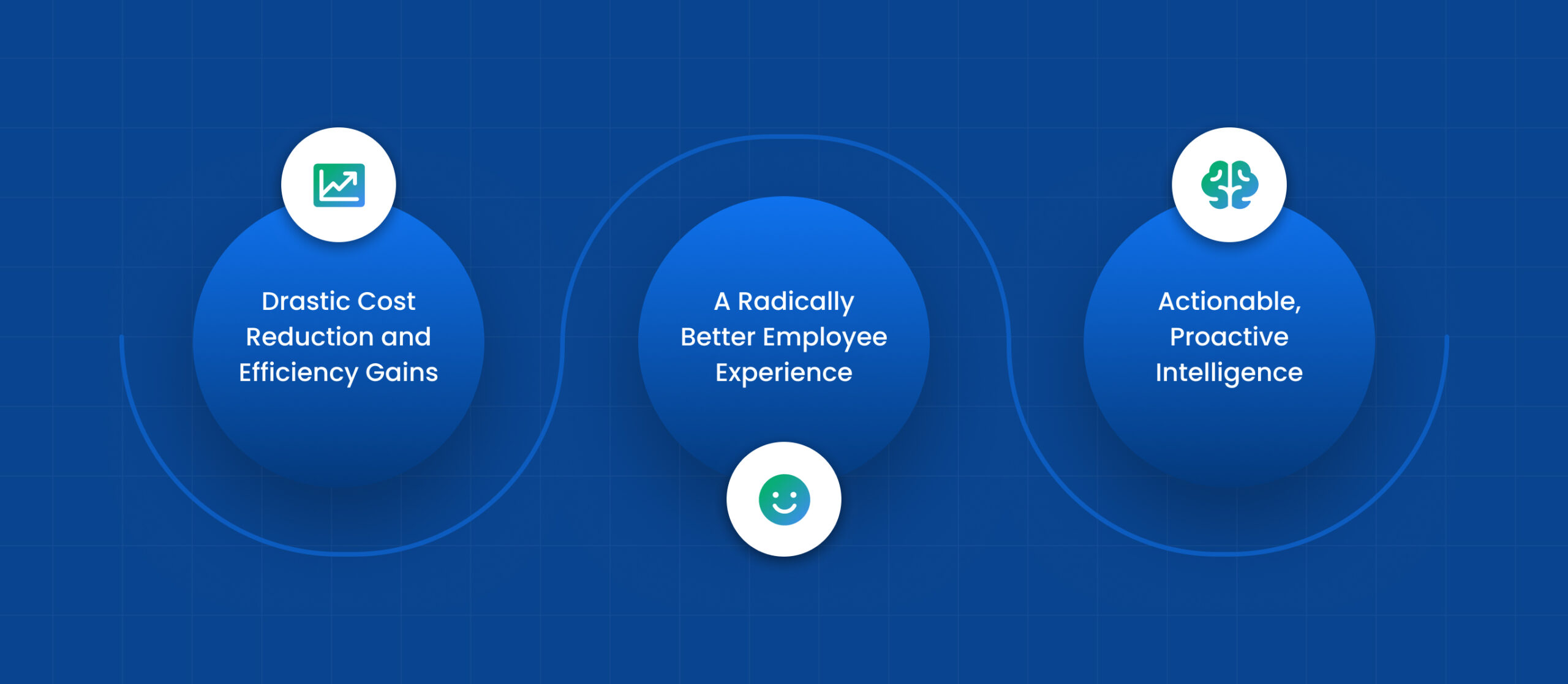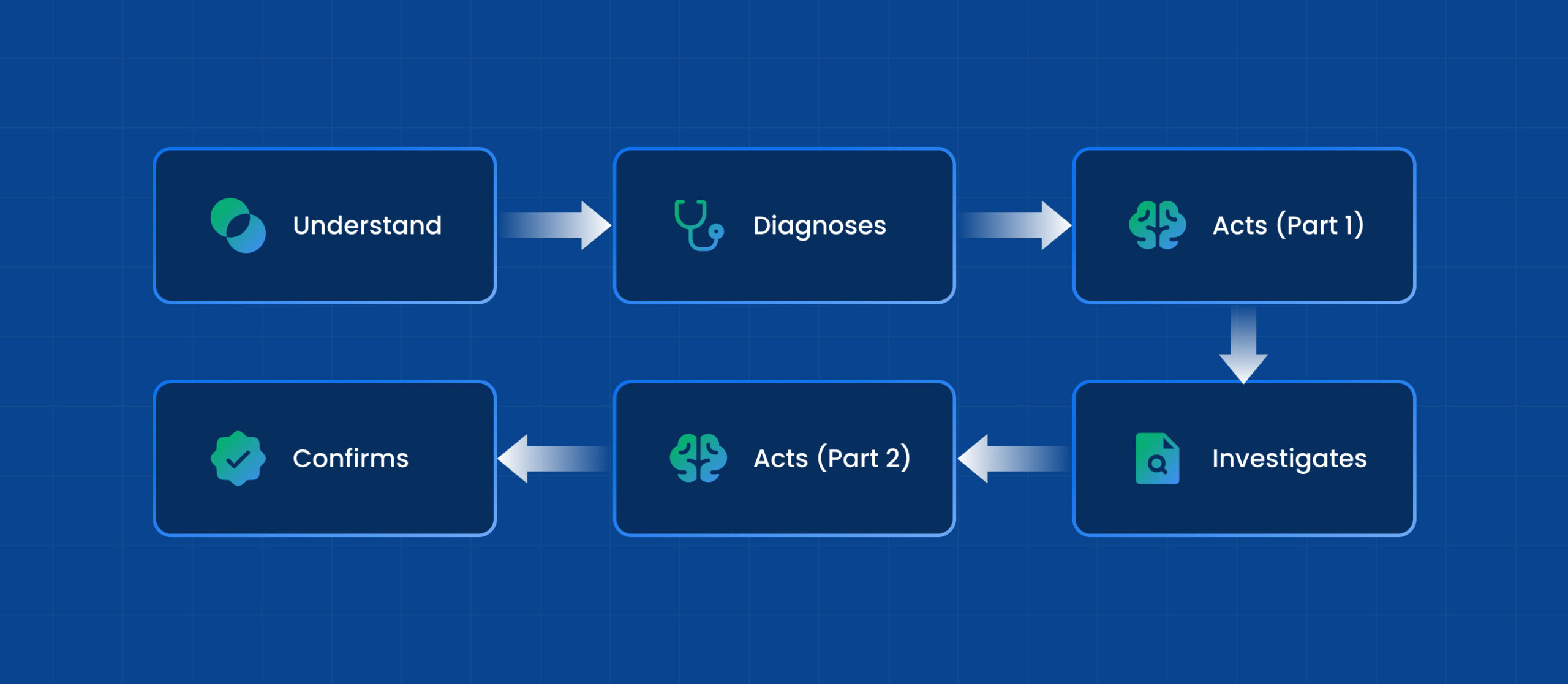Introduction
Hello, and thanks for stopping by. As the CTO here at Leena AI, I spend my days building the future of enterprise support. But I also spend a lot of time talking to technology leaders like you. And the conversation always comes back to the same challenge: the relentless, ever-growing queue of employee support tickets. It’s the silent drag on productivity. A simple password reset, a question about benefits enrollment, an approval request for a new software license, each one is a small interruption. But multiplied across thousands of employees, these small stops become a massive operational burden. For years, we’ve thrown more people and more complex software at the problem, but the backlog remains. We believe there’s a better way. It’s not about managing tickets more efficiently; it’s about eliminating them. This is the promise of modern AI Ticketing, and it’s a strategic shift that is fundamentally changing how the best companies operate. This isn’t a futuristic concept anymore; it’s a 2025 imperative.
Demystifying AI Ticketing for Today’s Enterprise
Let’s be clear: when we talk about AI Ticketing, we’re not talking about the clunky, first-generation chatbots that frustrated users with “I’m sorry, I don’t understand.” The technology has taken a monumental leap forward.
What is AI Ticketing?
Think of your traditional ticketing system, ServiceNow, Jira, Zendesk, as a digital filing cabinet. It’s great for logging and tracking problems, but it’s entirely passive. It waits for a human to open the drawer, read the file, and take action.
AI Ticketing, in its modern form, transforms that passive filing cabinet into an active, intelligent problem-solver. It’s an autonomous agent that doesn’t just log a request but understands it, reasons through the solution, and, most importantly, takes action to resolve it.
It’s the difference between cruise control, which simply maintains speed, and a true self-driving system that can navigate, change lanes, and reach a destination on its own. This evolution is the core of what makes AI Ticketing so powerful for large organizations.
The Transformative Power of AI Ticketing
Adopting an advanced AI Ticketing platform isn’t just an IT upgrade; it’s a business transformation that delivers value across three critical pillars.
Key Benefits of AI Ticketing

- Drastic Cost Reduction and Efficiency Gains: The most immediate benefit is automating the immense volume of repetitive, low-level tickets. When an AI can handle 60-70% of your IT, HR, and Finance queries instantly, you’re not just saving on operational headcount. You’re freeing up your talented human support teams to focus on complex, high-value projects that drive the business forward. This is how an AI Ticketing system turns a support function from a cost center into a strategic value engine.
- A Radically Better Employee Experience: Nothing frustrates an employee more than being blocked by a simple tech issue and waiting hours for a fix. An AI Ticketing solution provides instant gratification. It’s a 24/7, always-on concierge that empowers employees to get what they need, the moment they need it. This immediate resolution removes friction, improves productivity, boosts morale, and lets your people get back to their actual jobs.
- Actionable, Proactive Intelligence: A great AI Ticketing platform is also your enterprise’s early warning system. By analyzing thousands of interactions, it can identify systemic issues before they escalate. Are dozens of people in the marketing department suddenly asking for access to the same file? The AI can flag a potential permissions issue. Are new hires consistently asking the same question about their 401(k) enrollment? The AI can alert HR that the onboarding documentation needs clarification. It helps you fix the root cause, not just the symptom.
The Engine Behind Modern AI Ticketing: Agentic Automation
So, how does this work? The magic behind next-generation AI Ticketing lies in a concept that has rapidly evolved: Agentic AI.
Enterprise-Grade Agentic Automation
A simple chatbot follows a script. An agentic AI, on the other hand, is given a goal and the tools to achieve it. It can reason, plan, and execute multi-step tasks across different enterprise applications. This is the core of true Enterprise-Grade Agentic Automation.
Imagine an employee types into Slack: “My laptop is running super slow, and I can’t access Salesforce.”
An old chatbot might return a link to a generic “Troubleshooting Slow Laptops” article.
An agentic AI Ticketing system does this:
- Understands: It parses the two distinct problems: performance and access.
- Diagnoses: It securely connects to the employee’s device management tool, runs a diagnostic, and identifies that the memory usage is at 98%.
- Acts (Part 1): It triggers a script to clear the cache and terminate non-essential background processes, then informs the employee.
- Investigates: Simultaneously, it queries the identity management system (like Okta) and sees the employee’s Salesforce permission was accidentally revoked during a group update.
- Acts (Part 2): It interfaces with the ServiceNow API to log an automated request, gets it approved based on pre-defined rules, and re-provisions the access.
- Confirms: It sends a final message to the employee: “I’ve cleared some memory on your device, which should speed things up. I also found and fixed a permissions issue, and your Salesforce access has been restored. Can you please confirm?”
This entire workflow happens in under 90 seconds, with no human intervention. That is the power of agentic AI Ticketing.
Breaking Down Silos with Unified AI Ticketing
One of the biggest pain points in any large company is the fragmented nature of support. An employee doesn’t think in terms of departments or enterprise IT systems; they just have a problem. They shouldn’t have to figure out if their question goes to IT, HR, or Finance, and which of the underlying technology systems is the right technology to address their current needs.
Multi-Function Support in One AI
The most advanced AI Ticketing platforms solve this by providing a single, unified front door for all employee needs. This concept, Multi-Function Support in One AI, means your team has one place to go for everything.
Whether an employee asks, “What’s the Wi-Fi password for the Chicago office?” or “How many vacation days do I have left?” the AI understands the context and routes the query to the correct knowledge base or automated workflow. It can pull vacation data from Workday just as easily as it can pull network data from an IT knowledge base. This creates a seamless, intuitive experience that reflects how people think and work.
Choosing Your Partner in AI Ticketing Transformation
The market for these solutions is evolving quickly. You have legacy service desk providers bolting on AI features, and you have a new class of hyper-focused startups building from an AI-first perspective.
Top AI Ticketing Tools in the Market

When evaluating Top AI Ticketing Tools in the Market, it’s crucial to look beyond the marketing slicks. Ask vendors to demonstrate true, end-to-end autonomous resolution. Can their system do things, or does it just find and display information? Is it a true agent, or is it just a smarter search bar?
At Leena AI, we’ve dedicated ourselves to this new frontier of AI Ticketing. We don’t just augment your existing help desk; we build autonomous AI agents designed to be your new, fully digital first line of support. Our focus is squarely on Enterprise-Grade Agentic Automation.
For example, as seen in our IT use cases, our AI agent doesn’t just tell an employee how to request a new software license. It engages the employee in a conversation to understand the need, checks it against department budget codes, finds the line manager for approval, sends the approval request via Teams or Slack, and, upon approval, automatically provisions the license through your existing systems. The ticket is opened, resolved, and closed in minutes, often without a human ever touching it.
We believe this is the standard that every enterprise should demand from its AI Ticketing solution.
Frequently Asked Questions About AI Ticketing
-
What is the difference between a chatbot and an AI Ticketing agent?
A chatbot is typically a conversational interface that follows a pre-defined script or pulls from a knowledge base. An AI Ticketing agent is an “agentic” system. It not only understands the user’s intent but can also independently execute multi-step tasks across various enterprise systems (like resetting a password or approving a request) to resolve the issue autonomously.
-
How does an AI Ticketing system integrate with our existing platforms like ServiceNow or Workday?
Modern AI Ticketing platforms are built with integration in mind. They use secure APIs (Application Programming Interfaces) to connect to your existing systems of record. This allows the AI to read data (like employee details from Workday) and write data or trigger actions (like creating or updating a formal record in ServiceNow), ensuring seamless workflow and data consistency.
-
Is AI Ticketing secure, especially if it’s handling sensitive employee data?
Security is paramount. Enterprise-grade AI Ticketing solutions are designed with strict security protocols. This includes role-based access control (ensuring the AI only accesses data it’s permitted to), data encryption both in transit and at rest, and compliance with standards like SOC 2 and GDPR. The AI’s permissions are carefully configured so it can perform its job without overreaching its authority.
-
What kind of ROI can we realistically expect from an AI Ticketing platform?
The ROI is multifaceted. You’ll see hard savings from ticket deflection and automation, reducing operational costs by 40-60% in many cases. But the larger return often comes from “soft” ROI: increased employee productivity (less time waiting for support), higher employee satisfaction, and the ability for your human support teams to focus on strategic initiatives instead of repetitive tasks.
-
How much effort is required to set up and maintain an AI Ticketing system?
Leading AI Ticketing vendors have made the setup process remarkably efficient. Initial setup involves connecting to your key systems and “training” the AI on your company-specific knowledge documents and policies. Once live, the best systems use machine learning to continuously improve from every interaction, minimizing the need for constant manual tuning.
The future of work is one where employees are empowered and unburdened by internal friction. AI Ticketing is no longer just an interesting idea; it’s the practical, powerful, and essential engine driving that future.
The only remaining question is how quickly you’ll embrace it.
Learn more about Leena AI’s pioneering Agentic AI Architecture
Read Enterprise Customer Success Stories .
Check out why Gartner and many others recognise Leena AI as a leader in Agentic AI
Learn more about Voice-Enabled AI Colleague .
Sign up for our Webinars and Events








